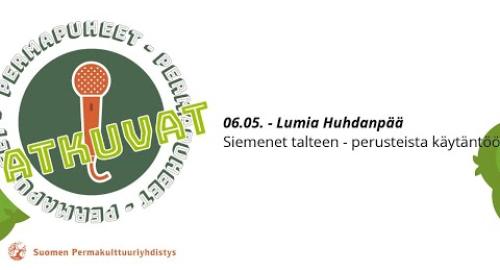Aranya - Deep Permaculture

About the lecture
Aranya will introduce some of the content from his forthcoming book 'Deep Permaculture - Revealing the Patterns and Systems Thinking Behind Ecological Design'
Overview from the book:
One of the strengths of permaculture is that anyone can learn it, and apply its ideas and principles in their own lives. As a grassroots movement it has the potential to inform and inspire millions across the world and yet this can also be its Achilles heel. Taught well, permaculture becomes a powerful tool for change, but the necessary simplification of its principles for beginners can lead to important concepts being overlooked. This can sometimes lead to isolated projects that don’t function well, resulting in permaculture getting a bad name.
Deep Permaculture seeks to address this by shining a light on aspects that can get overlooked by beginners, while also providing fresh layers of understanding for more experienced designers.
Systems thinking is an important skill for permaculture designers to acquire and there are already a number of excellent books on the subject. In Deep Permaculture I set out to convey the basic principles in the context of regenerating landscapes, using examples more familiar to permaculturists. While nature fine tunes for efficiency, it’s always balanced with resilience. In our modern world we sacrifice the latter for more of the former, leaving us vulnerable.
Our homes often lack significant stores of the food, water and energy we need, leaving us reliant on energy-hungry and leaky delivery systems. I expand on systems thinking’s basic stock and flow model, adding new functional elements and examining each of their properties. This extra level of detail makes it much easier to fine tune our existing support systems and construct new ones that have the efficiency and resilience of nature’s own.
Deep Permaculture is the result of over 15 years of research, the product of a curious mind. Nature’s forms are beautiful, but also functional. My hope is that this book offers us new tools to apply nature’s genius to real-world, practical problems.



